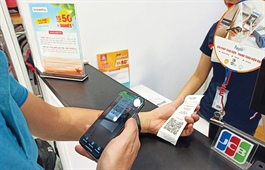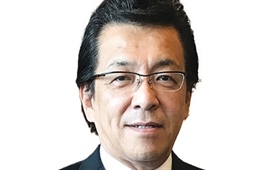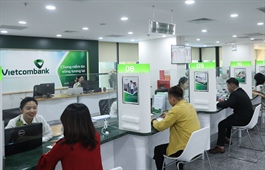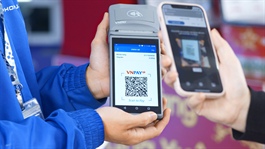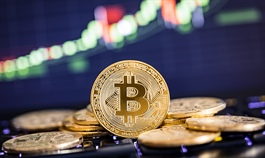Digital services to spur increasing remittances
Digital services to spur increasing remittances
Even as the global industry is on a declining trajectory, the rising number of international remittances is predicted to flow into Vietnam and some digital initiatives are being explored to smoothen and expedite remittance transactions.
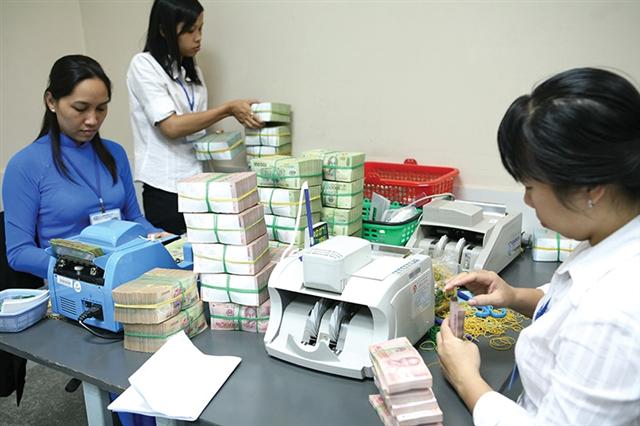
Vietnam is one of the largest beneficiaries of remittances in the world. Photo: Le Toan
|
According to fresh global remittance data compiled by the World Bank, the number of overseas remittances to Vietnam in 2020 was $17.2 billion, instead of $15.7 billion as the initial prediction. Thus, the updated figures in 2020 increased by nearly 3 per cent on-year, making Vietnam one of the top 10 beneficiaries among low and middle-income countries.
With overseas remittances transferred equivalent to 5 per cent of GDP in 2020, Vietnam was one of the top 10 countries in the East Asia-Pacific with the highest proportion of remittances compared to GDP.
The World Bank predicted that remittances will gradually recover thanks to mass vaccination, and it is forecast remittances transferred to low and middle-income countries will rise 5.6 per cent to $470 billion.
The State Bank of Vietnam’s (SBV) Ho Chi Minh City branch also noted that in the first four months of this year, overseas remittances to the city reached $2 billion, up 11 per cent on-year. Thus, remittances flowing to Ho Chi Minh City in 2021 will likely not be lower than 2020.
“As COVID-19 still devastates families around the world, remittances continue to provide a critical lifeline for the poor and vulnerable,” said Michal Rutkowski, global director of the Social Protection and Jobs Global Practice at the World Bank. “Supportive policy responses, together with national social protection systems, should continue to be inclusive of all communities, including migrants.”
With global growth expected to rebound further in 2021 and 2022, remittance flows to low- and middle-income countries are expected to increase by 2.6 per cent to $553 billion in 2021 and by 2.2 per cent to $565 billion in 2022. Even as many high-income nations have made significant progress in vaccinating their populations, infections are still high in several large developing economies, and the outlook for remittances remains uncertain, according to the World Bank.
From another perspective, the Ho Chi Minh City Real Estate Association (HoREA) explained the high inflows of cash that causes real estate prices to reach record highs also includes remittances.
The SBV also agreed, highlighting that low interest rates, the glittering appeal of industrial property, and potential infrastructure projects have significantly spurred property purchases across the nation in the past few years.
In the first three months of this year, credit had grown by 3 per cent against the end of 2020, nearly equal to the normal ratio of 2.93 per cent.
“Besides risk-hedging tools such as gold and risky assets like securities, people are aggressively exploring other lucrative investment opportunities for higher returns, and attractive property projects are one of them. Real estate is a valuable and finite resource, especially in some prime locations. In our observation, around 20 per cent of the total remittances inflows to Vietnam is poured into the real estate sector, thus making a feverish excitement in land recently,” emphasised a HoREA representative.
According to Nguyen Quoc Hung, director of Agribank’s Remittance and Payment Service Centre, the number of remittance inflows to Vietnam will enjoy vast benefits from seamless services thanks to the increasing number of intermediary payment platforms. This in return creates favourable conditions for Vietnamese workers as well as overseas Vietnamese who want to transfer money back home.
“Despite the impact of COVID-19 on the global economy, remittances from some key markets such as Japan have remained stable. In addition, the majority of Agribank’s customers are workers who went abroad in markets including Japan, South Korea, Taiwan, and the US,” said Hung.
Around half of remittance recipients sell USD to banks to receive VND, according to Agribank, which has helped the bank secure an abundant source of foreign currency.
Likewise, VietinBank has facilitated and upgraded remittance transferring infrastructures, such as online transactions via digital banking accounts. VietinBank has also implemented preferential fees and gift-giving programmes for first-time customers, among others. As a result, the number of overseas remittances coming into Vietnam through the bank remains high.
Germany’s data provider Statista also estimated Vietnam’s remittance e-market at around $22 million in 2019, and it is anticipated that the annual growth will reach 21.5 per cent from 2020 to 2023, resulting in $47 million.
However, the World Bank believed credit institutions remain the most expensive type of service provider, with an average cost of 10.66 per cent in a global context. In the first quarter of 2021, debit/credit cards became the cheapest method for funding a remittance transaction at 4.68 per cent. The average cost when using mobile money was 5.68 per cent. Sending money using cash costs 6.93 per cent, and funding the transaction using a bank account incurred an average cost of 6.65 per cent.
Experts also cautioned the exchange rate losses and processing fees on average totalled 9 per cent of the transfer and thus may not be a good option. “In an ideal scenario, the entire remittance customer journey would be digital: migrant workers would receive their wages directly into a digital account, from which they would remit straight into the account of a family member back home. For this to work, however, employers would have to shift from cash-based to digital wage payments,” the World Bank noted.
The long-awaiting mobile money implementation and the growing number of intermediary payment services in Vietnam are expected to facilitate international remittances safely and responsibly while reducing the risks of money laundering and terrorism financing. On March 9, the prime minister approved Decision No.316/QD-TTg on piloting the application of telecommunications accounts to pay for small-value goods and services.
These pilots shall be carried out on a national scale in rural, mountainous, remote, and border areas, as well as islands.





